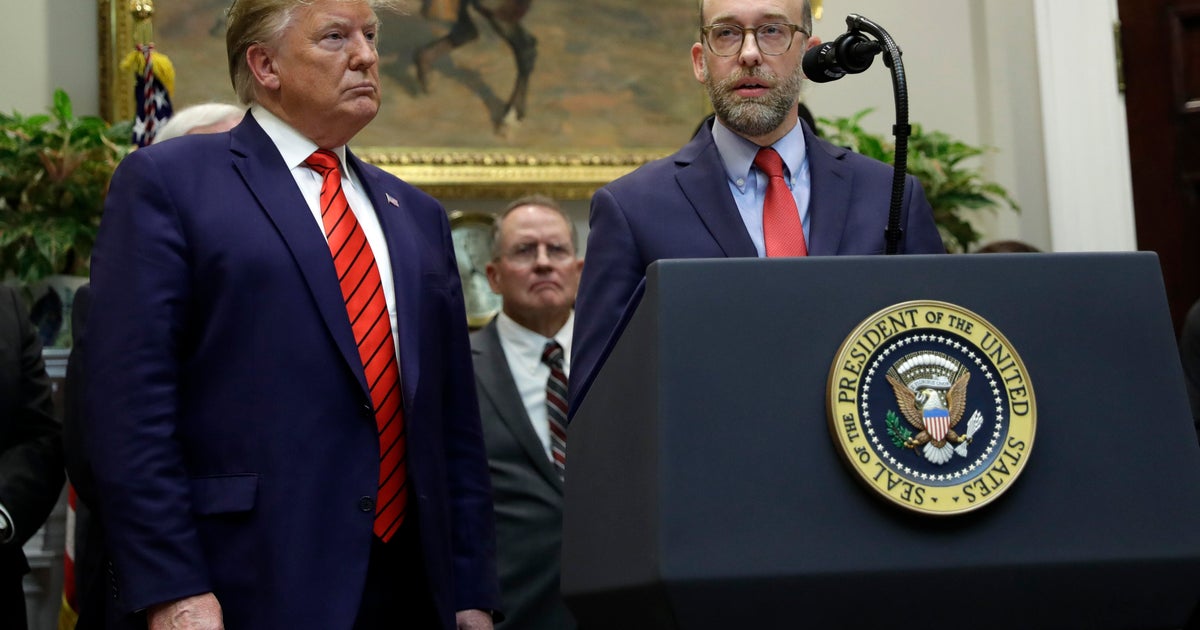Illegal crossings at U.S.-Mexico border fall to 3-year low, the lowest level under Biden
Illegal crossings along the U.S. southern border fell to a 3-year low in June following President Biden's drastic move to curtail asylum and continued efforts by Mexico to stop migrants heading north, according to preliminary Customs and Border Protection data obtained by CBS News.
Border Patrol processed approximately 84,000 migrants who crossed the U.S.-Mexico border without authorization in June, the lowest monthly level since Mr. Biden took office in January 2021, when the agency reported just over 75,000 migrant apprehensions, the internal statistics show.
June's migrant apprehension tally was also the fourth consecutive monthly drop, continuing an unexpected downward trend in illegal border crossings that started in the early spring. Border Patrol agents recorded 118,000 migrant apprehensions in May; 129,000 in April; 137,000 in March; and 141,000 in February, according to public government figures.
Migrant crossings dropped across border regions, including in remote and rugged stretches of Arizona and California that had become the busiest sectors for illegal entries.
The marked reduction in migration comes weeks after Mr. Biden invoked a presidential power frequently cited by the Trump administration to ban most migrants from asylum if they crossed into the U.S. between official border crossings, known as ports of entry.
The asylum crackdown — which includes exemptions for unaccompanied children and those who wait in Mexico for a chance to be processed at a port of entry — has allowed U.S. immigration officials to more quickly deport larger numbers of migrants, mainly those from Mexico and other countries in Latin America.
The sustained decrease in unauthorized border entries has also occurred against the backdrop of a months-long campaign by Mexican officials to slow U.S.-bound migration by carrying out more deportations to southern Mexico and preventing migrants from boarding trains and buses. The aggressive operation began after a meeting between top American and Mexican officials in December, when migrant apprehensions at the U.S. border reached a quarter of a million, a record.
Beyond U.S. and Mexican policies, other factors also influence migrant migration, including weather patterns and tactics by smugglers, who control the movement of migrants in many parts of Mexico. Temperatures along the U.S. border, for example, have increased rapidly and are expected to continue climbing further into the summer.
Senior U.S. officials told CBS News the partial asylum ban is the main driving force behind the steep decline in crossings. One official noted the drop has been more acute since the crackdown was announced on June 4. In the past week, the average of daily migrant apprehensions fell below 2,000 — or nearly half of May's 3,800 average, internal CBP data show. That number is also close to the 1,500 threshold the Biden administration set to suspend the asylum restrictions.
"The numbers have been going down before the presidential announcement, but they went down a lot more afterwards, so I think you have to give some credit to that," said Andrew Selee, president of the Migration Policy Institute, a Washington-based non-partisan think tank. "We have to assume, if nothing else, that in the short term it has dissuaded some people."
Under the sweeping policy change, U.S. officials have been returning and deporting thousands of migrants to Mexico or their home countries on a weekly basis without screening them for asylum. Only those who affirmatively say they fear being harmed if deported are being screened. But even then, those migrants are being interviewed using heightened screening standards for lesser-known protections that, unlike asylum, do not provide permanent legal refuge.
Asylum processing at ports of entry has continued under Mr. Biden's proclamation. U.S. border officials have continued to process and admit roughly 1,500 migrants each day at these legal entry points, using a smartphone app known as CBP One to coordinate their arrivals.
The stricter asylum rules have led to a 60% decrease in migrant releases, which U.S. officials have historically viewed as a pull factor that attracts migration, officials said. Migrants who are released are generally able to live and work in the U.S. for years, regardless of whether their asylum claims ultimately prevail, because of how backlogged the immigration courts are.
Still, U.S. officials concede Mr. Biden's proclamation is not a silver-bullet. The move, for example, has had a more limited impact on migrants from far-flung countries in the Eastern Hemisphere, such as China and parts of Africa, where the U.S. does not carry out regular deportations. Migrants from these countries are still banned from asylum under Mr. Biden's executive action, but some of them are still being released into the U.S. because they cannot be sent back home or Mexico due to diplomatic or operation constraints.
Mr. Biden's asylum order is also in legal peril. The American Civil Liberties Union filed a lawsuit against the policy in federal court, arguing it violates U.S. asylum law and increases the chances of American officials sending migrants back to places where they can be harmed. At the request of the ACLU, federal courts blocked a similar Trump-era asylum ban.
While it's unclear whether it will continue in the coming months, the migration lull is a political reprieve for Mr. Biden ahead of his presidential contest in November with former President Donald Trump, who has again made a immigration a pillar to his White House bid.
Immigration ranks among the worst-polling issues for Mr. Biden, whose administration has faced an unprecedented influx in migrant crossings along the southern border. And despite the steady drop in illegal border crossings, Trump has intensified his attacks on Mr. Biden's immigration record.
In last week's debate, Trump cited heinous crimes allegedly committed by migrants living in the country illegally, faulting Mr. Biden for their release into the U.S. During the campaign, Trump has promised to oversee the largest deportation operation in U.S. history and end birthright citizenship for the children of unauthorized immigrants if elected.





